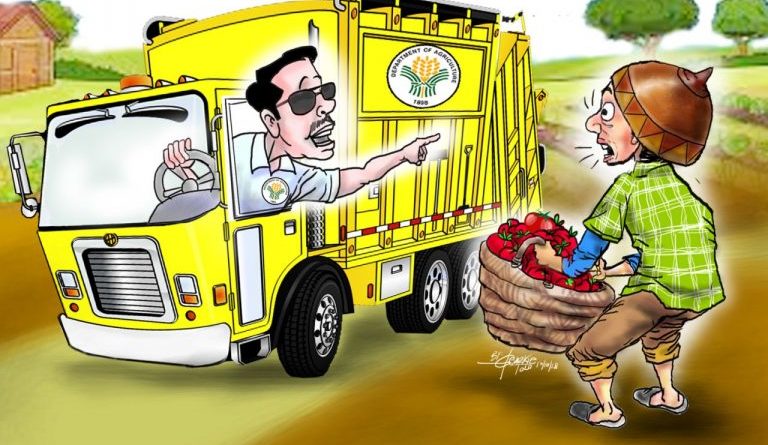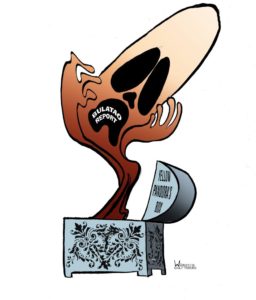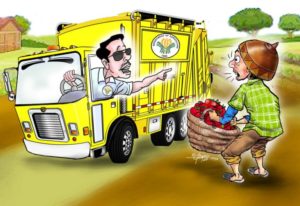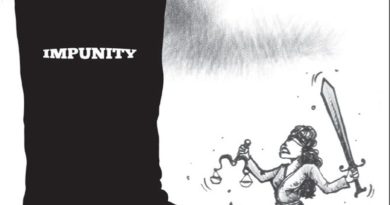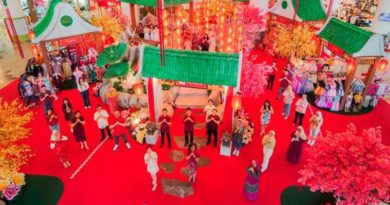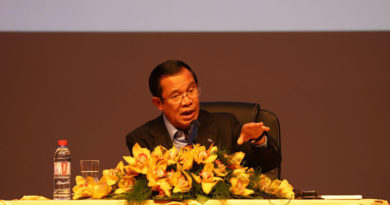OP ED EDITORIAL & CARTOONS: The Manila Standard’s Tomato rescue .
Do we still have a Department of Agriculture (DA)?
This we ask as there seems none anymore.
Amid what appears to be a short supply of rice (yet with continuing reports about rice smuggling) and necessitating President Rodrigo Duterte to “liberalize” the importation of the country’s top food commodity (when the DA could no longer ensure its supply and affordability), come more reports of wastage of precious food when others have none on their plates.
After rice, they’re tomatoes.
What’s happening to our agriculture authorities? This we ask as DA Calarbarzon Director Arnel de Mesa admitted recently that tomato farmers from Laguna were forced to dumped 10 metric tons of tomatoes worth P4 million on Monday.
This was due to Manila traders’ refusal to buy their produce due to oversupply.
But the DA countered the farmers did not suffer losses because they had already earned profit from previous harvests.
Such an unacceptable excuse, somebody must tell De Mesa.
Did he mean it was okay for those farmers to lose that huge possible income? Was it okay for them to disregard cost of planting and harvesting of their produce?
Farmers from Kalayaan town plant tomatoes on 40 to 50 hectares of land. Each hectare cost them P200,000 to produce the fruit. Production cost, we should remind De Mesa, still has to be recovered. Had the farmers been able to sell their produce at P4 million, they would have had profited for their families’ needs, invested back in their farming business or had been saved for the rainy days.
But they were forced to discard their ripened, if not rotting, tomatoes. No trader wants to buy them as the produce has little left in shelf life.
Traders reportedly could buy only up to five metric tons from P500 per box of 21 kilos to P100 per box. The excess tomatoes were rejected and returned to the farmers.
To avoid the oversupply and wastage from happening again, the provincial agriculture office has proposed to train vegetable growers on proper supply forecast. This, so the farmers will know which vegetable to plant that will still sell at reasonable prices at harvest time.
But supply forecasting is part of the job of agricultural authorities. Why make the proposal just now? Have they been remiss ever since?
Laguna agriculturist Marlon Tobias claimed to have advised farmers not to plant one product at the same time to avoid oversupply. Tobias, however, did not have a contingency plan after 40 tomato growers from Barangay San Antonio sought his help last week. For sure, the oversupply had happened before.
The DA opened the TienDA Malasakit Store at the compound of the Bureau of Plant and Industry (BPI) in San Andres, Manila last month to provide the public with affordable fruits, vegetables and other produce from Mindanao as well as dressed chicken, fish and rice from Central Luzon. The store was mobbed and everything sold out quickly. The DA also opened a similar store at its compound in Quezon City not only to give the public cheaper food but also to help farmers from the provinces sell their produce directly to consumers instead of to middlemen and traders.
But these are few and far between.
Tobias could have earlier arranged the sale of the tomatoes at the TienDA Malasakit Stores or helped set up a similar weekend market in other cities where tomato is short in supply like in Fairview, Quezon City.
The practice of dumping will not be too costly to local traders if done occasionally just to help farmers avoid losses from oversupply, but government is reeling from criticisms brought about by the rising prices of food commodities.
President Duterte is doing his best to keep food prices stable.
“He (Duterte) wants to flood the market with rice so that even if the price of crude and other oil prices should go up still further, the people will have access to affordable rice,” explained presidential spokesman Harry Roque on Tuesday.
President wants to liberalize the importation of rice to rein in inflation in food items. The high prices of rice have been hurting many people, particularly poor families. While the National Food Authority (NFA) imported more rice to make available P27 per kilo rice, retailers of such cheap rice are limited to selling 30 sacks per day while each buyer can only purchase a maximum of five kilos of NFA rice per day. Consequently, long lines at NFA rice retailers are expected and many queue as early as 2 a.m. to avoid missing purchasing affordable rice.
If agri leaders still fail to help farmers sell oversupply of produce, wastage can still be avoided by donating the excess tomatoes to restaurants or NGO that provide free meals to grade school students and street children, including the Duterte Kitchen.
The DA could have also helped reduce the price of livestock feed through the extra produce.
A local version of the La Tomatina festival would not have hurt, too.
La Tomatina is the tomato fight festival on the last Wednesday of August each year in the town of Bunol near Valencia, Spain. Thousands of people participate in the festival where more than one hundred metric tons of over-ripe tomatoes are thrown in the streets. That kind of tourism gimmick can boost income of Kalayaan tomato farmers by selling the tomatoes refused by traders to organizers of a Philippine version of the tomato fight festival.
And yes, tourism gets a lift too.
ASEANEWS EDITORIAL & CARTOONS:
7.2. MB- On the national anthem and getting up on one’s feetBELOW THE LINE – By AMBASSADOR JOSE ABETO ZAIDE
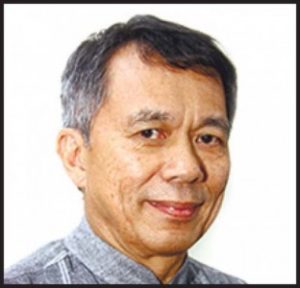

7.4. The Manila Times – MODERNIZE PHILIPPINE TRANSPORT


7.6 The Philippine Star –Self-serving

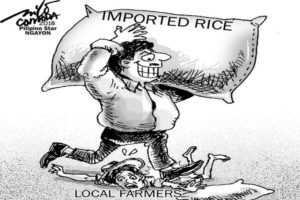
8.0. The Straits Times

The Straits Times says:
US-China brinkmanship is worrying
Relations between the United States and China now appear dangerously perched on a platform with just one leg: competition. The other leg, cooperation, which had underpinned their engagement since 1972, has been damaged by President Donald Trump’s mistrust of China. This was made crystal clear by his administration last week. In a speech at a Washington think-tank, US Vice-President Mike Pence bluntly accused Beijing of breach of faith, violation of sovereignty, theft and intimidation in its pursuit of national objectives and international influence. He also claimed that concerns about Chinese actions, and an appreciation for the Trump administration’s reset of its relations with China to put “America First”, were shared across the country and around the world.
The wedge may be driven deeper still if Treasury Secretary Steve Mnuchin determines next week that China is manipulating the yuan to create an unfair price advantage in the months-long trade war between the two sides. Tensions have been stoked by concerted policies spelt out in legislation and in Pentagon documents. These pinpoint China as a threat to American power and subject Chinese investments to unprecedented scrutiny. In fact, the US insisted on a clause in the incoming Nafta replacement deal to discourage partner nations from striking trade agreements with “non-market” economies such as China.
TO READ THE FULL ARTICLE: https://www.straitstimes.com/opinion/st-editorial/us-china-brinkmanship-is-worrying
 All photographs, news, editorials, opinions, information, data, others have been taken from the Internet ..aseanews.net | [email protected] |.For comments, Email to :D’Equalizer | [email protected] | Contributor
All photographs, news, editorials, opinions, information, data, others have been taken from the Internet ..aseanews.net | [email protected] |.For comments, Email to :D’Equalizer | [email protected] | Contributor

